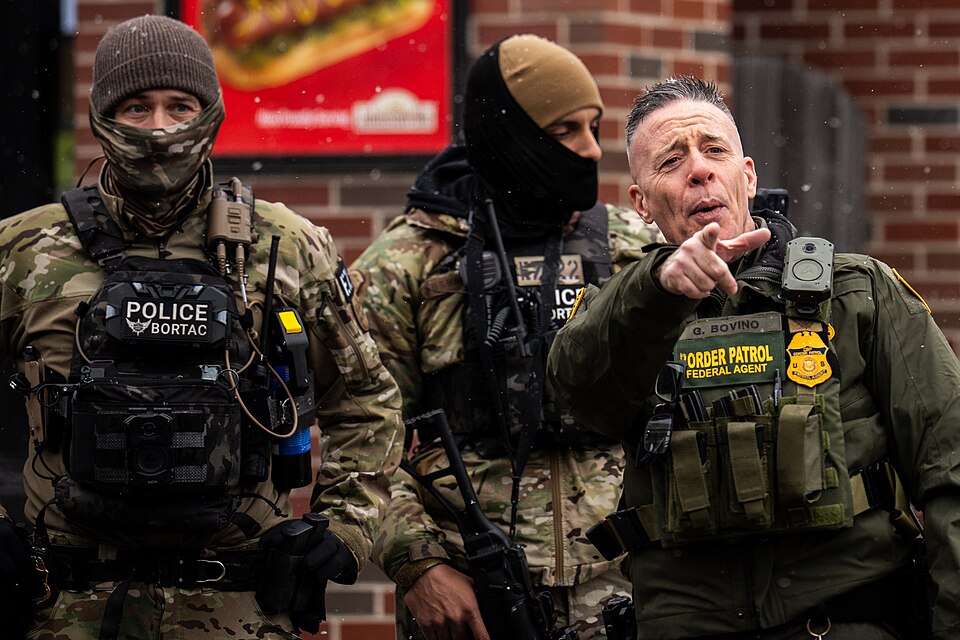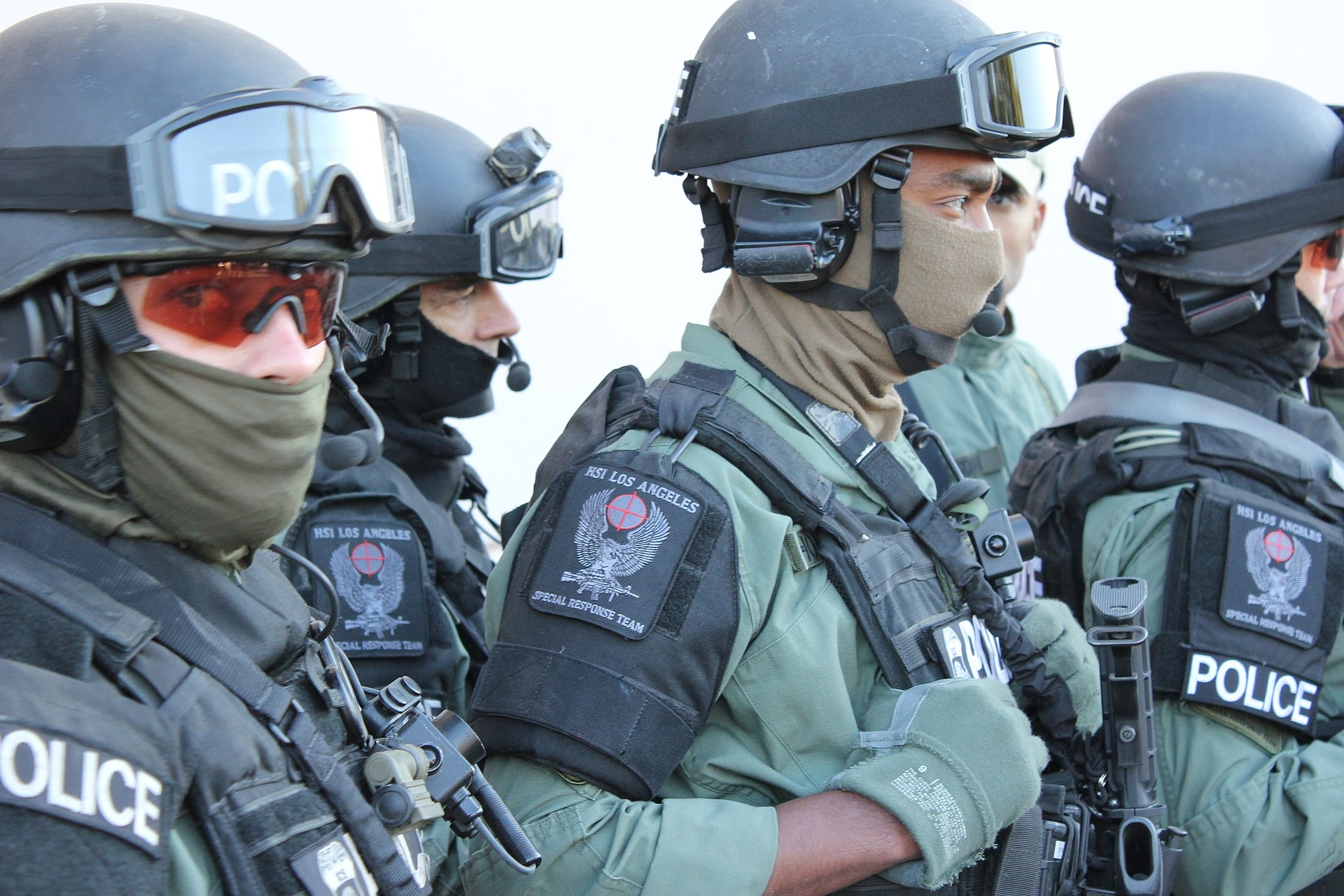
Journalist and author Julie K. Brown from the Miami Herald’s Investigative Team, joins This Is Hell! to talk about her work uncovering and investigating the Epstein Files, which can be found on her Substack, where she is still breaking new stories on the case.
We will have new installments of Rotten History and Hangover Cure. We will also be sharing your answers to this week's Question from Hell! from Patreon.
Help keep This Is Hell! completely listener supported and access bonus episodes by subscribing to our Patreon.
Dateline Pas Ris
Welcome to the Moment of Truth: the thirst that is the drink.
If I remember correctly (but to be honest it really doesn't matter if I do), according to the great author François Rabelais, Paris was founded when a mischievous giant urinated on a village of people who had irked him. They became known as the village that had been peed on, and would greet visitors from outside with the plea, "pas ris" – don't laugh. Never mind that the normal grammatical construction is "ris pas" – I come by this information via Rabelais, who was nothing if not a faithful historian.
"Don't laugh at us" implore the Parisians. I'm still trying to figure out if it's possible to comply. As a guest in this burg, I have no wish to offend my hosts. But they are quite risible at times. Donc, je pense que pour eviter de rire n'sera pas possible.
But if I weren't laughing, I'd be crying. See, no one here seems to believe that Marine le Pen has a chance of becoming the next leader of France, which, should it happen, I feel would lead to the kind of emboldening of violent rightwing behavior we've been seeing in the US. We talk about the Trump surprise, and the Brexit surprise, and they're aware of the "sensible" population's failure to predict those two recent political disasters, but at all the bars and cafes in the Montreuil and St Blaise, when I talk to working-class drunks or younger, hipper drunks, no one seems to harbor the slightest trepidation.
Which of course terrifies me. But at least I'm not laughing.
Everyone seems ready to admit that the conditions for such a rightwing populist spasm are similar here to those in the US and UK just before the unpleasantness. I don't even have to bring it up. Bien sur, they say. The socialist party is no longer socialist here, and hasn't been for the longest time, just as the Democratic party in the USA hasn't been much of a champion of the demos, nor has the UK's Labor party been much of a force for labor.
And if there's no polite, progressive way to express that Muslim immigrants might be a problem, the left do not hesitate to attempt it. In this neighborhood, where the workers are still cursing the bosses as vehemently as in the old days, and have no trouble pointing out the financial class's culpability in their economic troubles, and Muslims, especially those from North Africa, are well-integrated as fellow drinkers and fellow workers, there's still... read more
On This Day in Rotten History...
In 1911 – (106 years ago) – A total of 123 women and 23 men were killed in one of the deadliest industrial fires in US history. The Triangle Shirtwaist Factory, which manufactured women’s blouses, occupied the top three floors of a building in Greenwich Village, New York. Though smoking was not allowed, some workers snuck cigarettes on the job, and it’s believed that someone may have tossed a smouldering match or butt into a waste bin full of cotton scrap. Either that, or one of the sewing machines caused an electric spark. In rooms full of flammable cloth, the fire spread fast, but the workers soon found that some exits were blocked by flames, while others had been locked shut to keep anyone from stealing fabric or taking unauthorized work breaks. Fire trucks arrived quickly, but their ladders could not reach the building’s upper floors. After the elevators failed and a poorly maintained external fire escape collapsed, the desperate workers began jumping from the windows, to die as they hit the concrete sidewalks below. In age they ranged from fourteen to forty-three, and most were recent Jewish or Italian immigrants.
In 1947 – (70 years ago) – in Centralia, Illinois, one hundred eleven people died in a coal mine explosion, caused by combustion of heavy coal dust buildup in the underground tunnels. This danger and others had been cited repeatedly by inspectors, and miners’ union reps had taken their protests as high as the office of the Illinois governor — but the problem was not properly addressed by the mine company management or by state regulators. One hundred forty-two miners were in the mine when it blew up. Of the thirty-one who came out alive, many immediately went back down to help rescue their colleagues. During those rescue operations, state mining director Robert Medill almost caused a violent uprising by ordering that electric power be turned back on, to speed up the work and get the mine back on line. But state inspectors quickly shut him down, with evidence that doing so could have caused another explosion. The governor fired Medill a week later. The mine disaster inspired a song by Woody Guthrie.
Rotten History is written by Renaldo Migaldi

Listen live from 9AM - 1:00PM Central on WNUR 89.3FM / stream at www.thisishell.com / subscribe to the podcast
9:15 - Security analyst Elizabeth Grimm Arsenault traces the roots of America's new torture norms to pre-9/11 conservatism.
Elizabeth is author of How the Gloves Came Off: Lawyers, Policy Makers, and Norms in the Debate on Torture from Columbia University Press.
10:00 - Development researcher Rebecca Reeve explains how the garment industry packages exploitation as empowerment.
Rebecca wrote the article PR, profit and ‘empowering women’ in the garment industry for openDemocracy.
10:35 - Journalist Michelle Chen previews the impact of Trump policy plans on US childcare and public health.
Michelle wrote the articles Trump’s Childcare Plan Will Only Help the Rich and Trump’s Obsession With Cutting Regulations Will Make America Sick for The Nation.
11:05 - Writer Jessa Crispin explains why feminism has lost its radical promise - and how to recapture it.
Jessa wrote the book Why I Am Not a Feminist: A Feminist Manifesto from Melville House.
12:05 - Political scientist Maya Rockeymoore examines the coming labor impact of autonomous vehicles.
Maya is co-author of the report Stick Shift: Autonomous Vehicles, Driving Jobs, and the Future of Work from the Center for Global Policy Solutions.
12:45 - Dans un moment de vérité, Jeff Dorchen puts the "ris" in Paris.
Ris means laughters. I looked it up. I didn't just know that.
The Meat Of The Matter
Welcome to the Moment of Truth: the thirst that is the drink.
Let's talk about something nice for a change. After all, here we are, broadcasting out of Chicagoland, the land of the City that Works, where the big shoulders are, and all that nice meat. Chicago is the home of Meat Club, a few friends of mine who, with me, back in the day, made a few successful forays into the wide world of meat consumption that is one of the tender pastimes of that jungle of cities. Nothing dystopian about that, eh? Or maybe I'm being ironic. After all, you can't spell meat without "meta."
We in Meat Club had some of the best carnitas available from the Michoacan transplants in Pilsen, and a variety of game meats from Casa Samuel in Little Village. The delicious carne en su jugo could not hide from us in its deep beef broth on the southwest side, long before it became trendy and was then forgotten again. On my own I'd been to all the known Jalisco-style birrierias for their sole product, goat, but we never quite made it to such an establishment as the Club. I'd call that "unfinished business."
Meat. Where there is meat, there is hope. Why do I say that? Why do I risk offending so many vegans, vegetarians, and simply sensible people who know meat is killing our planet, particularly industrial meat-raising? Well, I'm not going to lie. I'm not going to claim to purchase only sustainable, kosher, organic, or heritage meats. In fact I actively despise organic meats, and only eat kosher when it's appropriate to the cuisine. I look for bargains. I'm a man of the people, because I have to work for a living, and I can't be paying quadruple the price for a chicken thigh that doesn't taste any better than one from Frank Purdue.
That is, I'm not in favor of fashionable sustainability. It oppresses poor people. And by "poor people" I mean anyone who's one extra expense away from not being able to pay for their housing, and everyone even worse off from there.
I love that there are organic farmers, and I support them when I can, and even if you're growing boutique mushrooms, I say more power to you. But I don't have the means to support much of that monetarily. There are farmers' markets, and organic farms themselves, intended to supply poor people, the demographic who have the hardest time eating healthily let alone sustainably. There are some right here in Los Angeles selling organic produce grown by poor people in urban... read more
On This Day in Rotten History...
In 1937 – (80 years ago) – in New London, Texas, a natural gas leak caused the deadliest school disaster in American history. To save money, the administration of New London School had canceled its regular heating gas contract, instead tapping into a line of residue gas from a nearby oilfield. This was a common cost-saving practice in that area, since the oil producers considered their residue gas to be a waste product and usually just burned it off. But natural gas has no odor of its own, and the oil field’s residue gas lacked the odor agents that natural gas providers are now required to add as a safety measure. So when the school’s wood-shop teacher turned on an electric sander in his classroom, he was unaware that the air in the room was saturated with gas. The building explosion could be heard four miles away, and some three hundred people, mostly young students, were killed.
In 1965 – (52 years ago) – Soviet cosmonaut Alexei Leonov performed the world’s first space walk, floating in the void for twelve minutes. He then spent the next fifteen trying to get back into his spacecraft. Due to political pressure from the Kremlin to score another win over the Americans, his spacesuit and breathing unit had been designed and built in such a frantic hurry that they were almost unworkable. The suit overheated, and grew rigid like a balloon. Leonov could not move his arms and legs without reducing the air pressure to a dangerously low level. In the struggle to re-enter his spacecraft, he almost passed out, and nearly ran out of oxygen. Returning to earth the next day, Leonov and his crewmate, Pavel Belyayev, landed hundreds of miles off target and spent a freezing night in the deep Russian forest, shivering inside their spacecraft as hungry wolves and bears circled outside. The Kremlin trumpeted the news of another space first, but the truth about Leonov’s brush with death remained a state secret for decades.
In 1967 – (50 years ago) – the BP-chartered supertanker Torrey Canyon hit a rock off the coast of Cornwall, Great Britain. Over the next few days, it dumped its whole cargo into the North Atlantic: 120,000 tons of crude oil from Kuwait. It was the worst such accident up to that time, and as the oil slick threatened the beaches of Cornwall and northern France, various attempts to clean it up failed miserably. Long... read more

Listen live from 9AM - 1:00PM Central on WNUR 89.3FM / stream at www.thisishell.com / subscribe to the podcast
9:15 - Historian Marjorie Spruill traces the ongoing, 40+ year battle between feminism and Christian conservatism.
Marjorie is author of Divided We Stand: The Battle Over Women's Rights and Family Values That Polarized American Politics from Bloomsbury.
10:05 - Policy analyst Alyssa Aquino reports on the experience of undocumented Filipino immigrants in Trump's America.
Alyssa wrote the article Undocumented Filipinos Are Living a Special Nightmare in Trump’s America at Foreign Policy in Focus.
10:35 - Writer Judith Levine discusses radicalism, liberalism and things worse than fear in the Trump era.
Judith wrote the essay Descent into Liberalism at n+1.
11:05 - Writer Lauren Elkin explores the liberatory power of simply wandering around the city, on foot, as a woman.
Lauren is author of the book Flâneuse: Women Walk the City in Paris, New York, Tokyo, Venice, and London from Farrar, Straus and Giroux.
12:05 - Kabul-based journalist Kate Clark examines the future of drone killings - in Afghanistan and beyond.
Kate wrote the articles Afghanistan, birthplace of the armed drone and Targeted Killings – a future model for Afghanistan? for Afghanistan Analysts Network.
12:45 - In a Moment of Truth, Jeff Dorchen spills his guts about meat eating.
Probably going to be a not at all controversial MOT, this one.
On This Day in Rotten History...
In the year 222 – (1,795 years ago) – the eighteen-year-old Roman emperor Elagabalus was ambushed and beheaded in a plot instigated by his own grandmother. Some historians portray him as an eccentric who alienated Romans by appointing unqualified people to high positions, forcing changes to public religion and rituals, and violating sexual taboos. For example, he married a Vestal Virgin while keeping a stable of male lovers. In some accounts, Elagabalus was not only fond of cross-dressing, but actually turned tricks as a prostitute, selling himself in taverns and in the imperial palace. The ancient Roman historian Cassius Dio claims that the emperor also offered huge sums of money, in vain, to any surgeon who could give him a sex change — and some recent authors have theorized that he may well have been transsexual or transgender. But other modern writers suspect that Elagabalus’s reputation was mostly fabricated after his death by the political rivals who killed him. After his headless body was dragged around Rome and dumped into the Tiber River, his name was removed from the official public record, and many of his political allies were also killed.
In 1864 – (153 years ago) – a tiny crack was noticed in a newly constructed earthen dam at Bradfield Reservoir in central England. In late afternoon, the crack was barely wide enough to accomodate a knife blade. But throughout the evening it steadily grew, provoking alarm among workers who finally resorted to using gunpowder in a desperate attempt to open an emergency spillway and relieve the water pressure. Their efforts failed, and just before midnight the dam collapsed, dumping almost seven hundred million gallons of water in a raging torrent that surged into the nearby industrial town of Sheffield. The flood killed some 250 people, and destroyed more than 400 houses, 20 bridges, and 100 factories and shops. The dam was one of only two designed by the civil engineer Sir Robert Rawlinson. His other dam lasted just twenty-nine years, requiring constant expensive repairs the whole time. In contrast, nine other dams built by Rawlinson’s rivals around the same time, and in the same area, are still in service today.
In 1918 – (99 years ago) – at Fort Riley, Kansas, Private Albert Gitchell, a US Army mess cook, was diagnosed with a new and unknown strain of the flu. He was the first... read more



